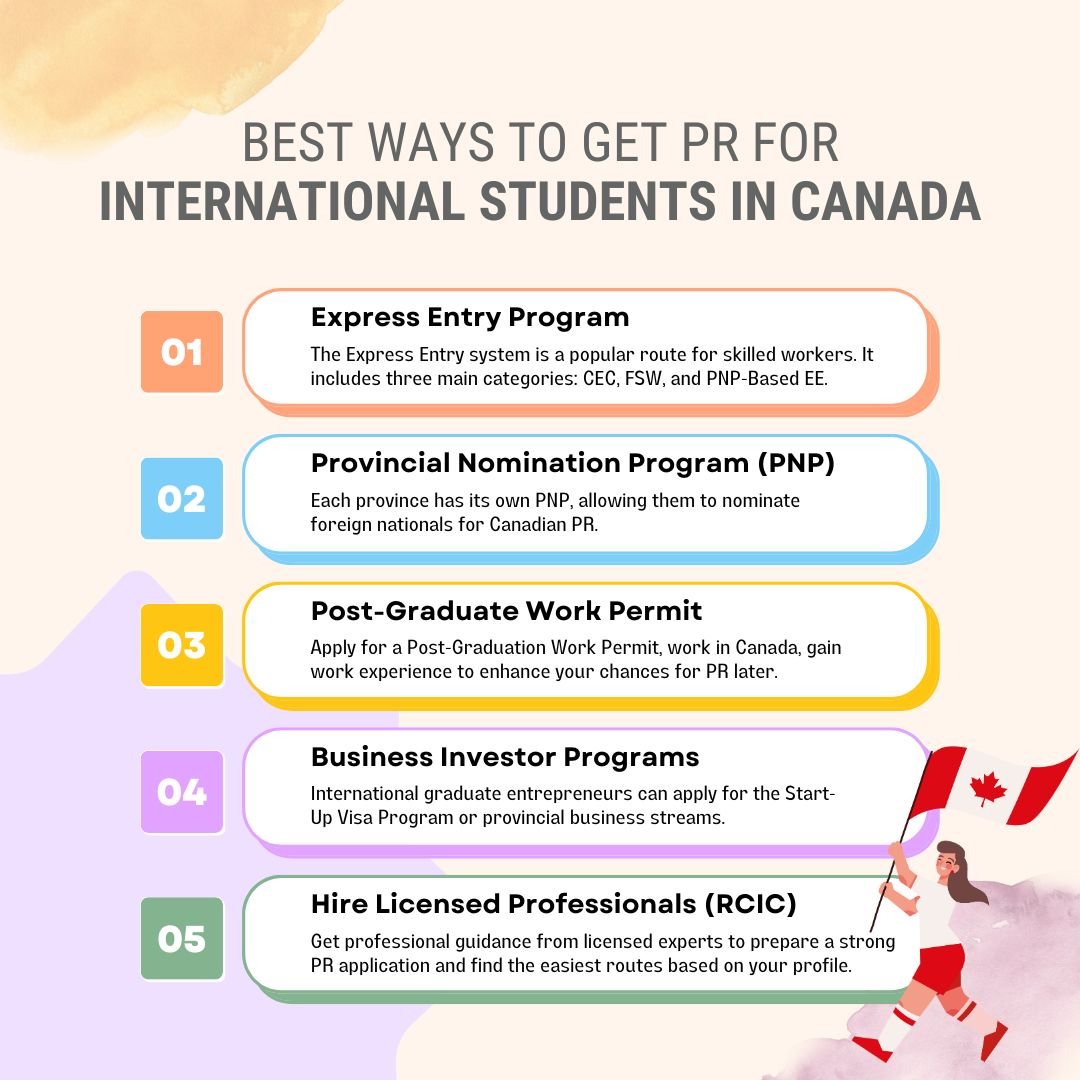How to Secure a Work Permit While Studying in Canada

Understanding the landscape of work permits in Canada is essential for those looking to embrace new job opportunities.
Types of Work Permits Available
Canada offers several types of work permits catering to different situations, such as:
- Employer-Specific Work Permit: Requires a Labour Market Impact Assessment (LMIA).
- Open Work Permit: No specific job offer is required, appealing for students or international partners.
- Post-Graduation Work Permit: For international students to gain Canadian work experience.
Eligibility Criteria for Work Permits
To qualify for a work permit, applicants typically need to meet the following criteria:
- Possess a valid job offer or be enrolled in an eligible study program.
- Undergo a medical examination if necessary.
- Ensure compliance with Canadian immigration regulations.
These guidelines set the foundation for successful work permit applications, paving the way for a thriving career in Canada.
Importance of Securing a Work Permit in Canada
Navigating the journey from an international student to a working professional in Canada can be transformative.
Benefits of Obtaining a Work Permit
Securing a work permit unlocks numerous advantages for individuals in Canada, including:
- Increased Work Flexibility: Move from limited hours with a study permit to full-time employment.
- Gaining Canadian Experience: Practical experience enhances employability and broadens professional networks.
- Financial Stability: Earning a salary can alleviate financial strain experienced during studies.
Impact on Future Career Opportunities
Holding a Canadian work permit significantly boosts future career prospects. For instance:
- Enhanced Job Applications: Employers often prefer candidates with local experience.
- Pathway to Permanent Residency: Work permits can streamline the transition to permanent residency, paving the way for long-term settlement in Canada.
Embracing the work permit opportunity sets the stage for a flourishing career in Canada.

Work Permit Options for International Students in Canada
For international students in Canada, navigating the various work permit options can open doors to new opportunities.
Off-Campus Work Permit
During their studies, international students can apply for an Off-Campus Work Permit, which allows them to work while studying. Key points include:
- Must hold a valid study permit.
- Typically allows for part-time work during the academic year and full-time during scheduled breaks.
- Employment must not exceed the specified limit of hours.
Post-Graduation Work Permit
The Post-Graduation Work Permit (PGWP) is a valuable option for those who wish to gain skills and experience after completing their studies. Here’s what to consider:
- Valid for up to three years, depending on the length of the study program.
- Students must apply within 180 days of getting their final grades.
- Successful applications provide a pathway to enhance job prospects in Canada.
Leveraging these work permit options helps students seamlessly transition into the Canadian workforce, fostering their career development.
Application Process for a Work Permit in Canada
Once international students have decided to apply for a work permit, understanding the application process becomes crucial.
Required Documents
To initiate your application, ensure you have the following documents ready:
- Study permit: Proof of your authorization to study in Canada.
- Job Offer: A letter from your employer for your intended position.
- Transcripts: Documentation from your educational institution confirming your progress.
Application Fees and Processing Time
Applying for a work permit involves specific fees and expected waiting times:
- Application Fee: CAD $155 for the work permit, plus an additional fee of $100 for an open work permit holder.
- Processing Time: Generally ranges from 80 to 180 days, depending on various factors like your home country.
Being organized and thorough in your submission can significantly smooth out the process, paving your way toward a successful application.
Work Permit Regulations and Restrictions in Canada
Understanding the regulations surrounding work permits in Canada is essential for compliance and successful employment.
Rules for Working Hours
For international students working on a study permit, specific rules apply regarding working hours:
- During School Terms: Students can generally work up to 20 hours per week.
- Scheduled Breaks: Full-time work is permitted, allowing students to gain substantial work experience during vacations.
These guidelines ensure students maintain their primary focus on education while gaining valuable practical experience.
Prohibited Industries for Work Permit Holders
Certain industries are off-limits for work permit holders, reflecting Canada’s commitment to ethical work standards. These include:
- Adult Entertainment: Work in striptease, escort services, or erotic massage.
- Sexual Services: Any employment relating to sex work.
Being aware of these restrictions is crucial to maintaining compliance with Canadian laws and ensuring a successful work experience.
Maintaining Work Permit Compliance in Canada
Once international students secure their work permits in Canada, it’s essential to maintain compliance to avoid any complications.
Updating Status Changes
If there are changes in your study status or personal circumstances, it’s crucial to update your work permit details promptly. This may include:
- Change in Program: Inform authorities if you switch institutions or courses.
- Address Changes: Always keep the IRCC informed about your address changes to maintain accurate records.
Extending Work Permits
To continue working legally, students may need to extend their work permits. Keep in mind:
- Timing: Apply for an extension before the current permit expires to avoid legal issues.
- Eligibility: Ensure that you still meet all eligibility requirements outlined in your original application.
Staying on top of these procedures will help secure your experience in Canada and prevent unnecessary complications.
https://www.elaarimmigration.com/canadian-study-permit-visa/

Work Permit vs. Permanent Residency in Canada
Navigating the landscape of immigration in Canada is crucial, especially for international students aiming to build a future in this diverse country.
Differences in Immigration Status
- Work Permit: This is a temporary status allowing you to work under specific conditions. It is typically tied to a specific job or employer.
- Permanent Residency: This grants the right to live, work, and study in Canada indefinitely, offering greater stability and access to various social benefits.
Pathways to Permanent Residency
After accumulating valuable Canadian work experience through a work permit, students can transition to permanent residency via several pathways including:
- Express Entry: A system for managing applications from skilled workers.
- Provincial Nominee Program (PNP): Allows provinces to select candidates who meet local labor market needs.
Understanding these pathways aids in planning a long-term career and residence in Canada.
Tips for Successful Work Permit Applications in Canada
Navigating the complexities of work permit applications can be challenging. Here are some effective strategies to enhance your chances of success.
Seeking Legal Assistance
Engaging an immigration consultant or lawyer can prove invaluable. They can help you:
- Understand Requirements: Ensure you’re aware of all legal obligations and documentation needed.
- Prepare Your Application: Assist in filling out forms accurately to avoid delays.
Having expert guidance can help relieve the stress of the application process.
Networking for Job Opportunities
Building connections in Canada can open doors to employment. Here are some tips:
- Attend Workshops and Events: Participate in industry-related networking events to meet potential employers.
- Utilize Online Platforms: Leverage platforms like LinkedIn to connect with professionals in your field.
Establishing a robust network can significantly increase your chances of securing a job offer, which is crucial for your work permit application.





